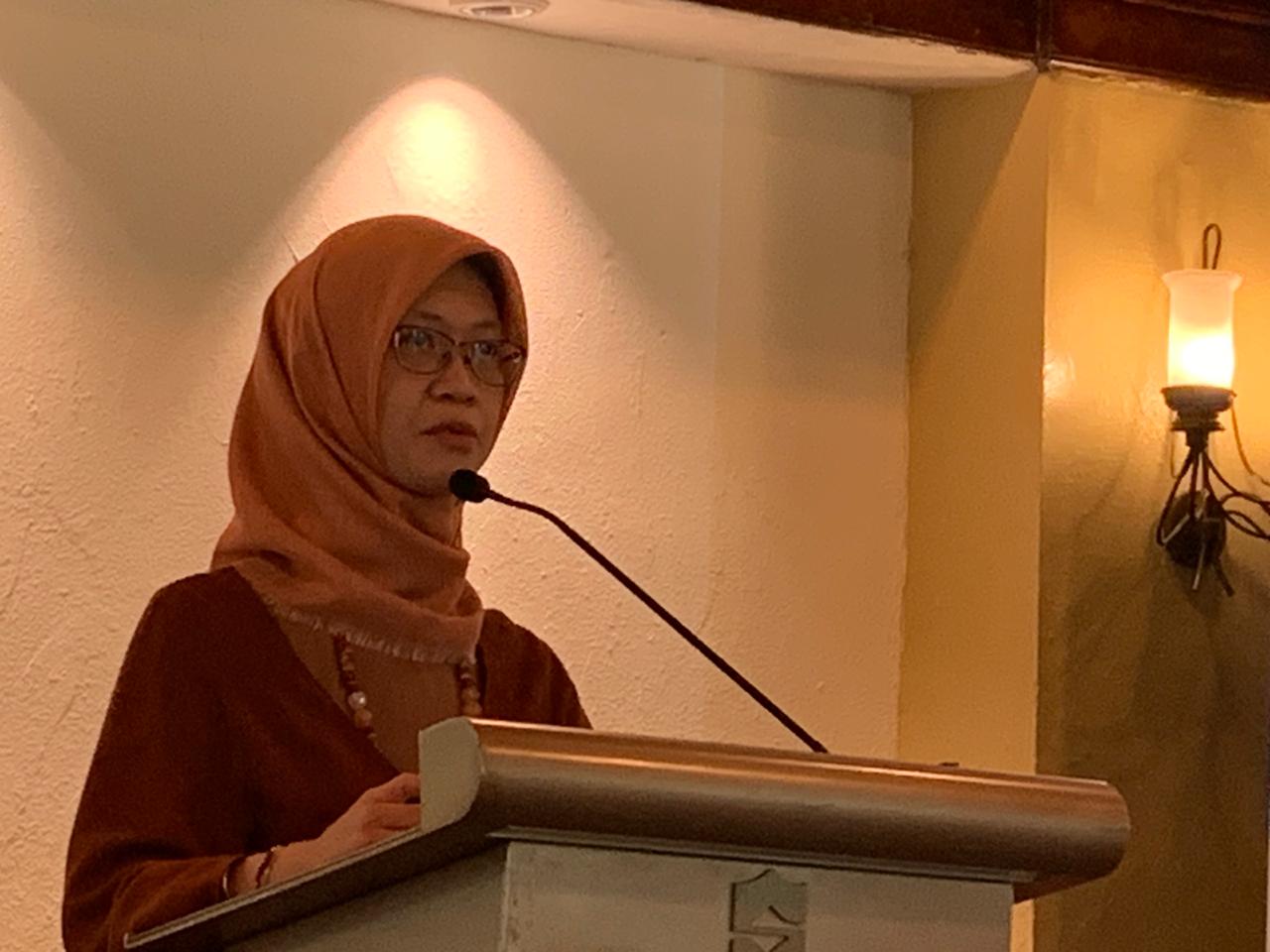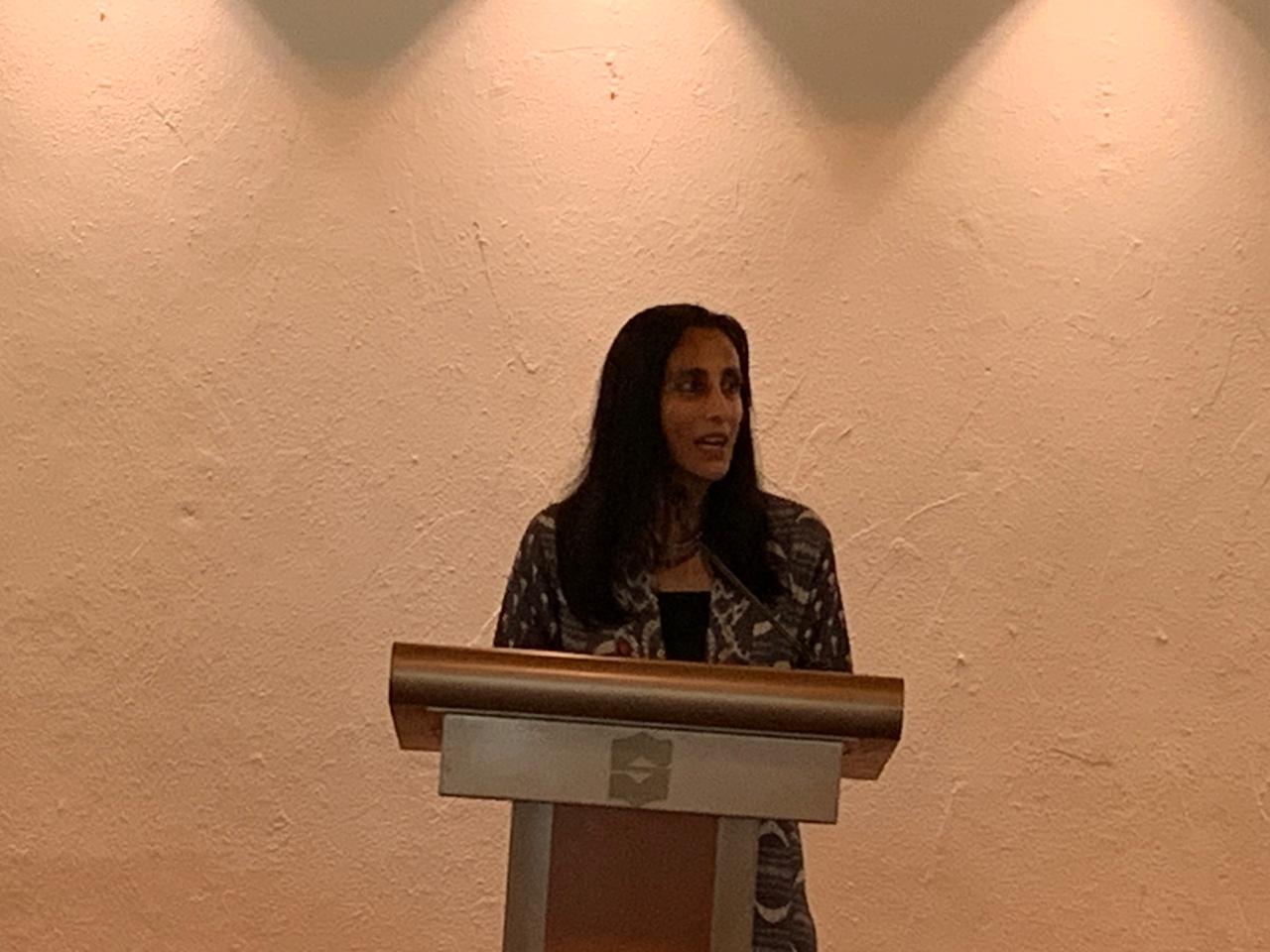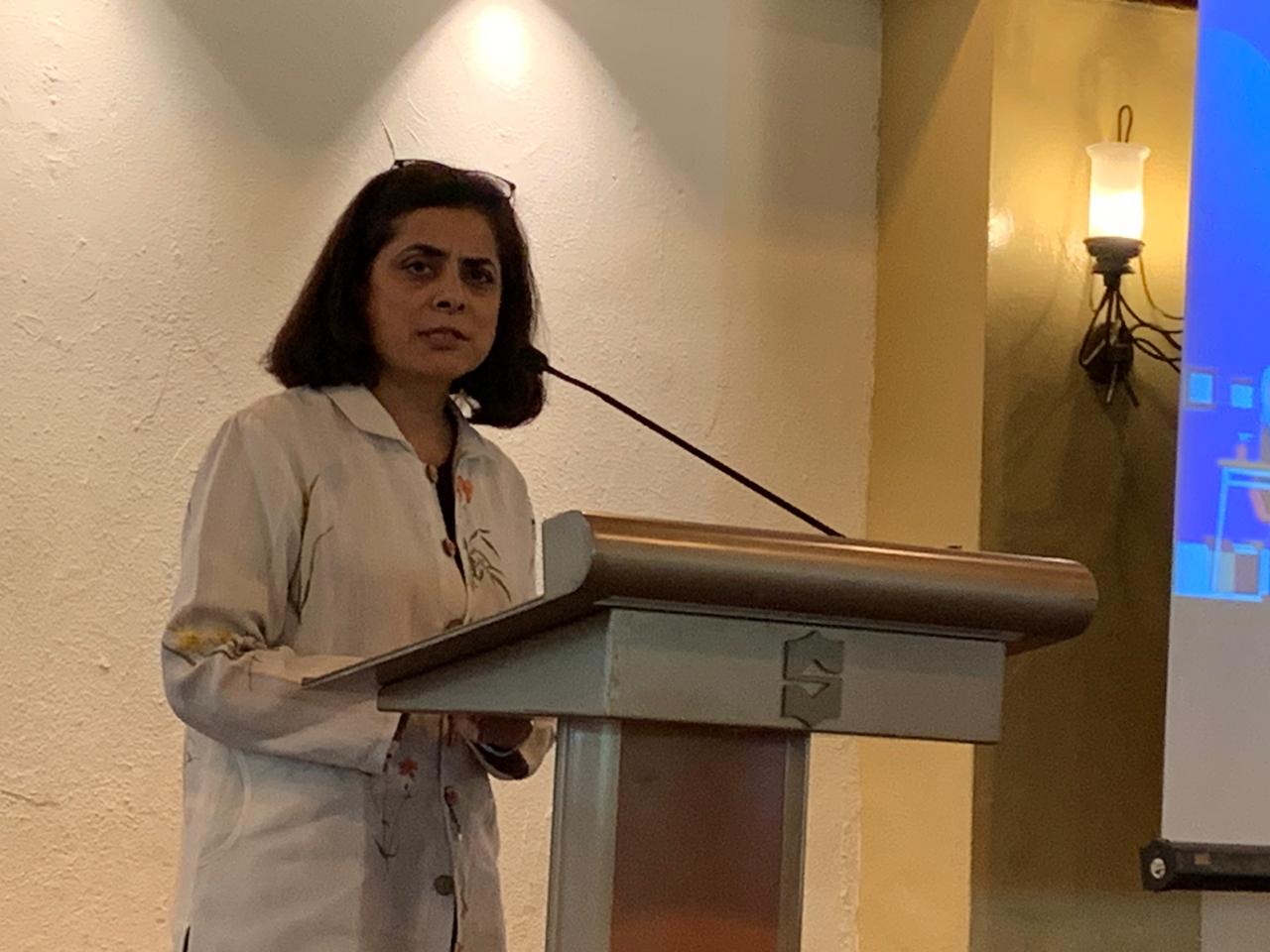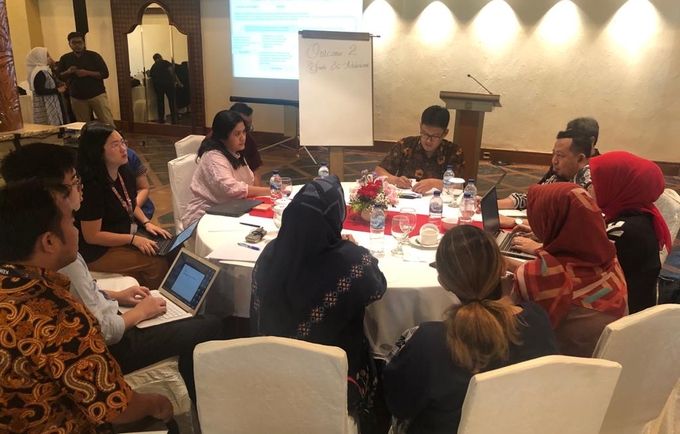 Jakarta, 4 March 2020.
Jakarta, 4 March 2020.
More than 110 participants representing government agencies, NGOs, FBOs, young people, international development partners, as well as experts attended a validation meeting of the Country Programme Document 10 (CP10) of UNFPA-GoI in Jakarta. The validation meeting was an important process in the development of the CP10 2021-2025. The meeting was organized by Bappenas as the Government Coordinating Agency, that coordinates the planning and implementation of UNFPA-GoI Country Programmes.
The draft of the CP10 covers five outputs, aiming to address four outcomes.
Output 1 aims to increase government and professional association capacities to prevent and address maternal mortality.
Output 2 aims to strengthen national and sub-national capacity to ensure universal access and coverage to high quality sexual and reproductive health information and services.
Output 3 aims to strengthen national capacities to implement policies and programmes that address the determinants of adolescent and youth sexual and reproductive health, development and wellbeing.
Output 4 aims to enhance capacities of national and sub-national institutions and communities to create an enabling environment for women and girls to exercise their rights and to implement programmes that prevent and respond to gender-based violence and harmful practices.
Output 5 aims to use disaggregated population data and demographic analysis in the sustainable development planning and monitoring.
 The validation meeting was officially opened by Ms. Woro Srihastuti Sulistyahingrum, representing theDeputy for Human Development, Community, and Culture of Bappenas. The validation meeting focused on gathering inputs and improving the commitment of related stakeholders on the design and implementation of the CP10. The Government of Indonesia is now implementing the Medium-Term National Development Planning – RPJMN 2019-2024, which has seven priorities. “The CP10 should support and linkto at least two priorities of the current Government i.e. improving the quality and competitive human resources, as well as mental revolution and cultural building”, said Ms Sulistyaningrum during the opening session.
The validation meeting was officially opened by Ms. Woro Srihastuti Sulistyahingrum, representing theDeputy for Human Development, Community, and Culture of Bappenas. The validation meeting focused on gathering inputs and improving the commitment of related stakeholders on the design and implementation of the CP10. The Government of Indonesia is now implementing the Medium-Term National Development Planning – RPJMN 2019-2024, which has seven priorities. “The CP10 should support and linkto at least two priorities of the current Government i.e. improving the quality and competitive human resources, as well as mental revolution and cultural building”, said Ms Sulistyaningrum during the opening session.
 “The drafting process of the CP10 is a strategic opportunity for UNFPA to further evaluate its role in supporting Indonesia’s development, and to receive input from partners as to what that role should be”, said Ms. Anjali Sen, UNFPA Representative during her opening remarks. “The main focus of the proposed programme is to support national efforts to achieve universal access to sexual and reproductive health and reproductive rights, in line with UNFPA’s transformative results to end maternal deaths, unmet need for family planning and gender-based violence and harmful practices. It is also in line with the principle of leaving no one behind, focusing on women, adolescents and youth, particularly those living in rural and peri-urban areas, people with disabilities, and female sex workers”, she added.
“The drafting process of the CP10 is a strategic opportunity for UNFPA to further evaluate its role in supporting Indonesia’s development, and to receive input from partners as to what that role should be”, said Ms. Anjali Sen, UNFPA Representative during her opening remarks. “The main focus of the proposed programme is to support national efforts to achieve universal access to sexual and reproductive health and reproductive rights, in line with UNFPA’s transformative results to end maternal deaths, unmet need for family planning and gender-based violence and harmful practices. It is also in line with the principle of leaving no one behind, focusing on women, adolescents and youth, particularly those living in rural and peri-urban areas, people with disabilities, and female sex workers”, she added.
 The CP10 is developed based on the evaluation of CP9 2016-2020. It is also developed to align with the global UNFPA Strategic Plan for 2018-2021, Indonesia’s National Medium-Term Development Plan, or RPJMN, for 2020-2024, and the still to be finalized United Nations Sustainable Development Coorporation Framework or UNSDCF, for 2021-2025, as well as the SDGs 2030. It will also be informed by the ICPD Programme of Action, which came under a 25-year review last year during the Nairobi Summit. But the CP10 should also try to link with one UN reform. “I would like to thank to UNFPA, who has been developing the CP10 not only based on the above documents, but also links with one UN reform. UNFPA has been contributing a lot in Indonesia, by working together with other UN agencies, together with Government Agencies”, said Ms. Anita Nirody during the validation meeting.
The CP10 is developed based on the evaluation of CP9 2016-2020. It is also developed to align with the global UNFPA Strategic Plan for 2018-2021, Indonesia’s National Medium-Term Development Plan, or RPJMN, for 2020-2024, and the still to be finalized United Nations Sustainable Development Coorporation Framework or UNSDCF, for 2021-2025, as well as the SDGs 2030. It will also be informed by the ICPD Programme of Action, which came under a 25-year review last year during the Nairobi Summit. But the CP10 should also try to link with one UN reform. “I would like to thank to UNFPA, who has been developing the CP10 not only based on the above documents, but also links with one UN reform. UNFPA has been contributing a lot in Indonesia, by working together with other UN agencies, together with Government Agencies”, said Ms. Anita Nirody during the validation meeting.
The validation meeting provided the opportunity for the government partners, NGOs, FBOs, young people, and experts to share their inputs on the documents. But at the same time, it also provides information on programme priorities that need to be addressed. “The validation meeting gave me, as a new member of the National Commission on Prevention of Violence Against Women – NCVAW, some directions on what we need to do and focus in the next five years 2021-2025 in working with UNFPA”, said Theresia Rini of Komnas Perempuan.
The validation meeting provided inputs that will be incorporated in the current draft document. The CP10 document will be sent to UNFPA APRO and then to UNFPA Headquarters in New York to be presented in the Executive Board meeting in September 2020.

